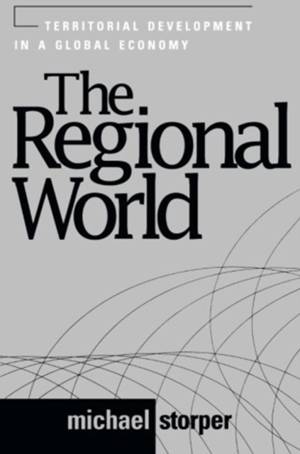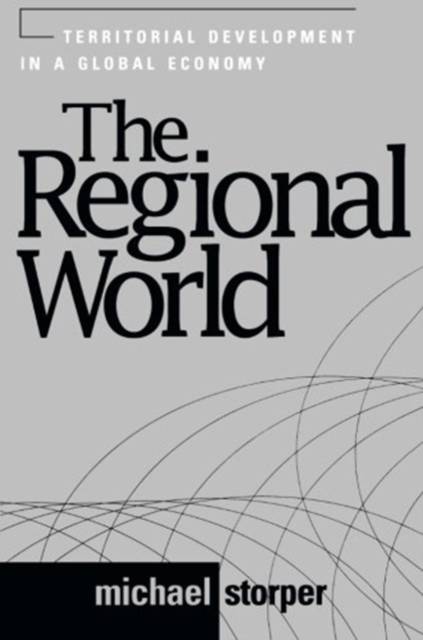
Bedankt voor het vertrouwen het afgelopen jaar! Om jou te bedanken bieden we GRATIS verzending (in België) aan op alles gedurende de hele maand januari.
- Afhalen na 1 uur in een winkel met voorraad
- In januari gratis thuislevering in België
- Ruim aanbod met 7 miljoen producten
Bedankt voor het vertrouwen het afgelopen jaar! Om jou te bedanken bieden we GRATIS verzending (in België) aan op alles gedurende de hele maand januari.
- Afhalen na 1 uur in een winkel met voorraad
- In januari gratis thuislevering in België
- Ruim aanbod met 7 miljoen producten
Zoeken
Omschrijving
This pioneering volume proposes a compelling new theory of how regions have sustained their economic viability in the era of multinational corporations. Unlike traditional approaches, which analyze economic systems in terms of their mechanics (inputs, outputs, prices, technology, etc.), this work views them as systems for coordinating human actions and relationships. Reconceptualizing the role of learning, technology, and local institutions in development, Storper illuminates the key role of regional economies as building blocks of the increasingly connected world. A thought-provoking and timely work, The Regional World carries resounding implications for educators, students, and policymakers in economic geography, economic sociology, and international business. It is an essential primary or supplementary text for graduate-level courses on economic, regional, or industrial development and policy and international business.
Specificaties
Betrokkenen
- Auteur(s):
- Uitgeverij:
Inhoud
- Aantal bladzijden:
- 338
- Taal:
- Engels
- Reeks:
Eigenschappen
- Productcode (EAN):
- 9781572303157
- Verschijningsdatum:
- 31/10/1997
- Uitvoering:
- Paperback
- Formaat:
- Trade paperback (VS)
- Afmetingen:
- 152 mm x 232 mm
- Gewicht:
- 539 g

Alleen bij Standaard Boekhandel
+ 148 punten op je klantenkaart van Standaard Boekhandel
Beoordelingen
We publiceren alleen reviews die voldoen aan de voorwaarden voor reviews. Bekijk onze voorwaarden voor reviews.









